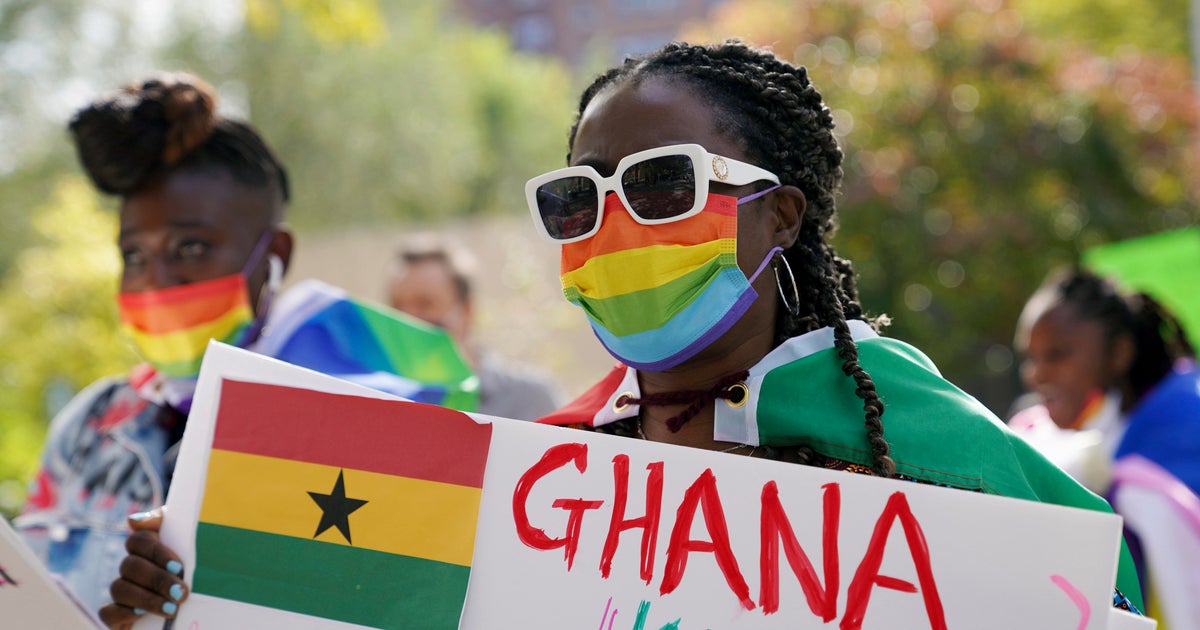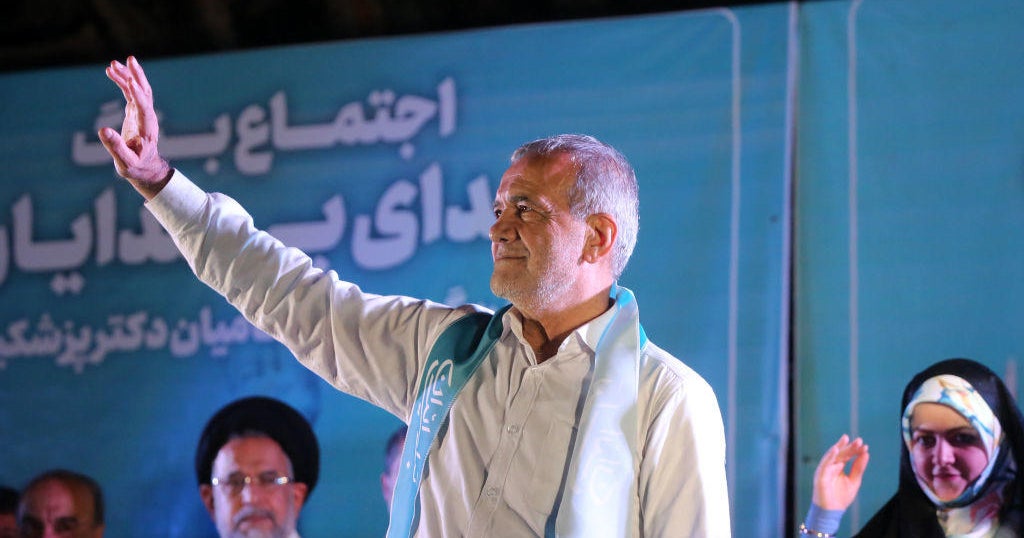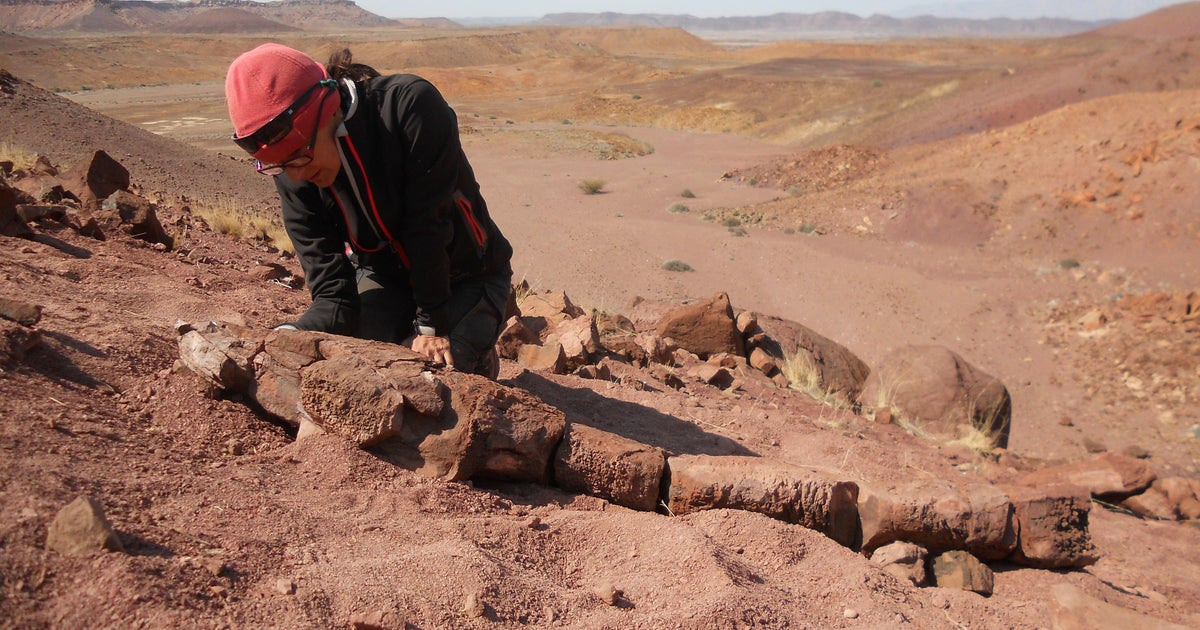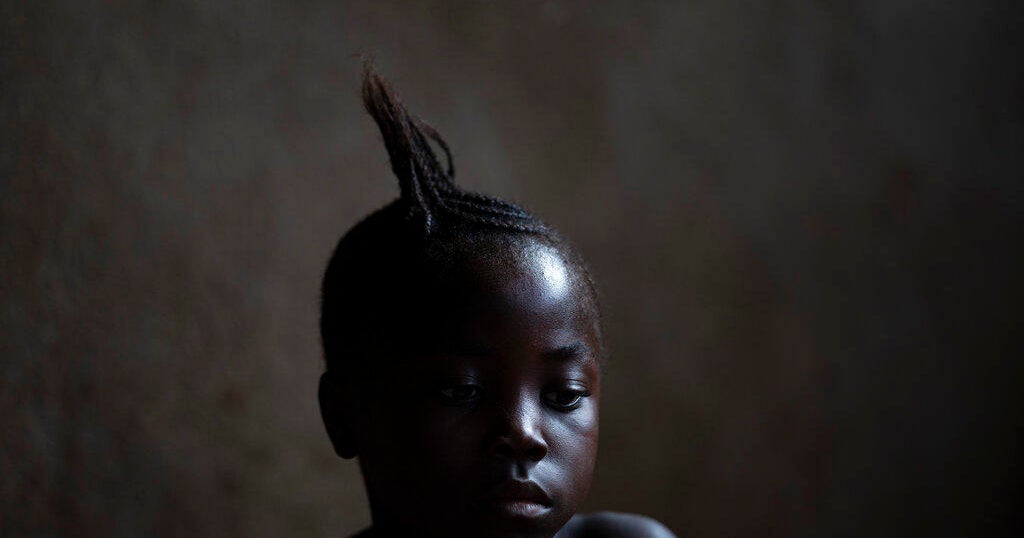CBS News
Ghana’s parliament passes strict new anti-LGBTQ legislation to extend sentences and expand scope

Johannesburg — Ghana’s parliament approved a highly controversial anti-LGBTQ bill on Wednesday after months of debate. The Human Sexual Rights and Family Values bill is one of the toughest pieces of anti-LGBTQ legislation in Africa.
Homosexuality is already illegal in Ghana and punishable by up to three years in prison. Under the new law, that maximum sentence will increase to five years. It would also bring in a custodial sentence for people convicted of advocating for LGBTQ rights and make the distribution of material deemed supportive of LGBTQ rights illegal.
Emily Leshner/AP
The bill, which was sponsored by a group of traditional leaders from Ghana’s Christian and Muslim communities, now must be signed into law by President Nana Akufo-Addo. He’s widely expected to do so, though he’s not said publicly whether he’ll sign the legislation.
The Big 18 & Human Rights Coalition, an umbrella group of lawyers and activists in Ghana, said at a Tuesday news conference that the bill “criminalizes a person’s identity and strips away fundamental human rights” and urged the president to reject it.
Takyiwaa Manuh, a senior fellow at the Ghana Centre for Democratic Development, noted to CBS News that Akufo-Addo has not signed any previous privately sponsored bills into law due to the demands of an article in the country’s constitution that requires scrutiny over potential financial impacts of legislation.
Manuh said the speaker of the parliament had carried out no such analysis of the new bill as required, and that if it is enacted, she argued that it would place a “heavy burden on the judiciary, the police and other aspects of life.”
“I am sad, disappointed and surprised that our commitment and democratic principles in this country appear to be so shallow,” lamented Manuh. “This bill represents a real danger to our country, and we are looking to the president to uphold the values of our country and constitution.”
Manuh said Ghanaian civil society organizations were ready to file legal challenges against the bill.
“Shockingly, we have found that the majority of people haven’t even read the bill,” which she said, “implies duties on parents, landlords, owners of businesses.”
She said when people do read and understand how they could actually be implicated by the legislation, they’re shocked at how it could make them liable for the actions of others.
As the debate over the bill increased in recent weeks, so did attacks on members of the LGBTQ community. Activists say students have been attacked and expelled from school, people have been robbed, and many have been subjected to extortion from community members threatening to out them.
Manuh said her organizatioon had received numerous reports of people being banished from their hometowns, losing their jobs and all support from their own families.
“It’s a chilling feeling,” she told CBS News. “No one should face jail time or harassment for their sexuality. Their rights must be respected.”
The United Nations warned in 2021 that the proposed law would “create a system of state-sponsored discrimination and violence” against gay people in Ghana.
The top constitutional court in Uganda, the nation with the most extreme anti-LGBTQ laws in Africa, is currently considering a ruling on a law there that threatens life imprisonment and even death for homosexuality.
Ugandan civil rights groups immediately challenged the anti-homosexuality act when it passed in December. The U.S. has condemned that legislation and sanctioned Uganda by restricting visas and withholding trade over it.
It is not clear how long the court may take to issue its ruling on the constitutionality of the law.
CBS News
As sunscreen misinformation spreads online, dermatologists face real-life impact of online trends

With the holiday weekend in full swing, the anti-sunscreen movement’s recent spike is worrying dermatologists.
“It was not like this before,” Dr. Jeanine Downie, a board-certified dermatologist with her own practice in New Jersey told CBS News Confirmed. “I see easily six patients per week that are anti-sunscreen, where it used to be maybe one every other week or one a month. And now it’s just gotten crazy.”
Downie says in the last two weeks she’s diagnosed three squamous cell and two malignant melanomas, both of which can turn cancerous if not caught early. “And that’s me, just one little dermatologist,” she said.
This movement picked up steam in June, with creators on TikTok telling followers in no uncertain terms “stop wearing sunscreen.” At first, the posts received tens of thousands of views and likes. Dermatologists on the platform then began sharing their own reactions, with those videos gaining even more views. And more recently, influencer Nara Smith went viral sharing an at-home sunscreen recipe to her 8 million followers that dermatologists say does little to protect wearers from sun damage.
Dr. Shereene Idriss, a New York dermatologist who has amassed more than a million followers on her social media channels, is trying to leverage that influence to educate users about sunscreen and sun protection.
“It’s becoming more and more difficult, I think, as a consumer, to try to weed through the noise,” Idriss told CBS News Confirmed.
This misinformation reflects the surprising reality of how some young Americans view sun safety. A study by the Orlando Health Cancer Institute in March found that 1 in 7 adults under the age of 35 say daily sunscreen use is more harmful than direct sun exposure. “I tell my patients, if you want your face to look like a leather bag later, then that’s up to you,” Downie said. About 6.1 million adults are treated each year for basal cell and squamous cell carcinomas according to the CDC. Skin cancer is the most common type of cancer in the country.
“They only want the natural things,” said Downie. “But I tell them all the time, sitting in traffic here in the tri-state area, the level of pollutants in the air on a daily, weekly and monthly basis is significantly more toxic than any chemical they’re going to rub into their skin with sunblock.”
While there’s no evidence that sunscreens are unsafe, the FDA is currently investigating potential concerns. It’s called for more data on 12 ingredients often found in U.S. sunscreen. After conducting its own study into how certain ingredients are absorbed into the bloodstream, the FDA has called for more research into potential health effects on the body.
However, beachgoers on the Jersey Shore this week told CBS News that sun safety is top of mind this summer. CBS News Confirmed looked at Google Search trends and saw terms like “sunscreen” and “what does skin cancer look like” are at an all-time high since tracking began in 2004.
“You know what gets them to start wearing sunblock?” said Downie. “Young kids and young adults, Gen Z, Gen X, they hate pores. And once they hear that they’re going to have big pores that look like potholes, they put that sunblock on.”
The dermatologists CBS Newsspoke with say there is no such thing as a healthy tan. To best protect yourself this summer, they say to use sunscreen and reapply often; wear UPF clothing or UV visors; and avoid being outside during peak UV index between 10 a.m. and 2 p.m.
CBS News
7/5: CBS Evening News – CBS News

Watch CBS News
Be the first to know
Get browser notifications for breaking news, live events, and exclusive reporting.
CBS News
Moderate Masoud Pezeshkian wins Iran’s presidential runoff election

Reformist candidate Masoud Pezeshkian won Iran’s runoff presidential election Saturday, besting hard-liner Saeed Jalili by promising to reach out to the West and ease enforcement on the country’s mandatory headscarf law after years of sanctions and protests squeezing the Islamic Republic.
Pezeshkian promised no radical changes to Iran’s Shiite theocracy in his campaign and long has held Supreme Leader Ayatollah Ali Khamenei as the final arbiter of all matters of state in the country. But even Pezeshkian’s modest aims will be challenged by an Iranian government still largely held by hard-liners, the ongoing Israel-Hamas war in the Gaza Strip, and Western fears over Tehran enriching uranium to near-weapons-grade levels.
A vote count offered by authorities put Pezeshkian as the winner with 16.3 million votes to Jalili’s 13.5 million in Friday’s election.
Fatemeh Bahrami/Anadolu via Getty Images
Supporters of Pezeshkian, a heart surgeon and longtime lawmaker, entered the streets of Tehran and other cities before dawn to celebrate as his lead grew over Jalili, a hard-line former nuclear negotiator.
But Pezeshkian’s win still sees Iran at a delicate moment, with tensions high in the Mideast over the Israel-Hamas war in the Gaza Strip, Iran’s advancing nuclear program, and a looming U.S. election that could put any chance of a detente between Tehran and Washington at risk.
The first round of voting June 28 saw the lowest turnout in the history of the Islamic Republic since the 1979 Islamic Revolution. Iranian officials have long pointed to turnout as a sign of support for the country’s Shiite theocracy, which has been under strain after years of sanctions crushing Iran’s economy, mass demonstrations and intense crackdowns on all dissent.
Government officials up to Supreme Leader Ayatollah Ali Khamenei predicted a higher participation rate as voting got underway, with state television airing images of modest lines at some polling centers across the country.
However, online videos purported to show some polls empty while a survey of several dozen sites in the capital, Tehran, saw light traffic amid a heavy security presence on the streets.
The election came amid heightened regional tensions. In April, Iran launched its first-ever direct attack on Israel over the war in Gaza, while militia groups that Tehran arms in the region — such as the Lebanese Hezbollah and Yemen’s Houthi rebels — are engaged in the fighting and have escalated their attacks.
Iran is also enriching uranium at near weapons-grade levels and maintains a stockpile large enough to build several nuclear weapons, should it choose to do so. And while Khamenei remains the final decision-maker on matters of state, whichever man ends up winning the presidency could bend the country’s foreign policy toward either confrontation or collaboration with the West.
The campaign also repeatedly touched on what would happen if former President Donald Trump, who unilaterally withdrew America from the Iran nuclear deal in 2018, won the November election. Iran has held indirect talks with President Joe Biden’s administration, though there’s been no clear movement back toward constraining Tehran’s nuclear program for the lifting of economic sanctions.
More than 61 million Iranians over the age of 18 were eligible to vote, with about 18 million of them between 18 and 30. Voting was to end at 6 p.m. but was extended until midnight to boost participation.
The late President Ebrahim Raisi, who died in a May helicopter crash, was seen as a protégé of Khamenei and a potential successor as supreme leader.
Still, many knew him for his involvement in the mass executions that Iran conducted in 1988, and for his role in the bloody crackdowns on dissent that followed protests over the 2022 death of Mahsa Amini, a young woman detained by police over allegedly improperly wearing the mandatory headscarf, or hijab.









